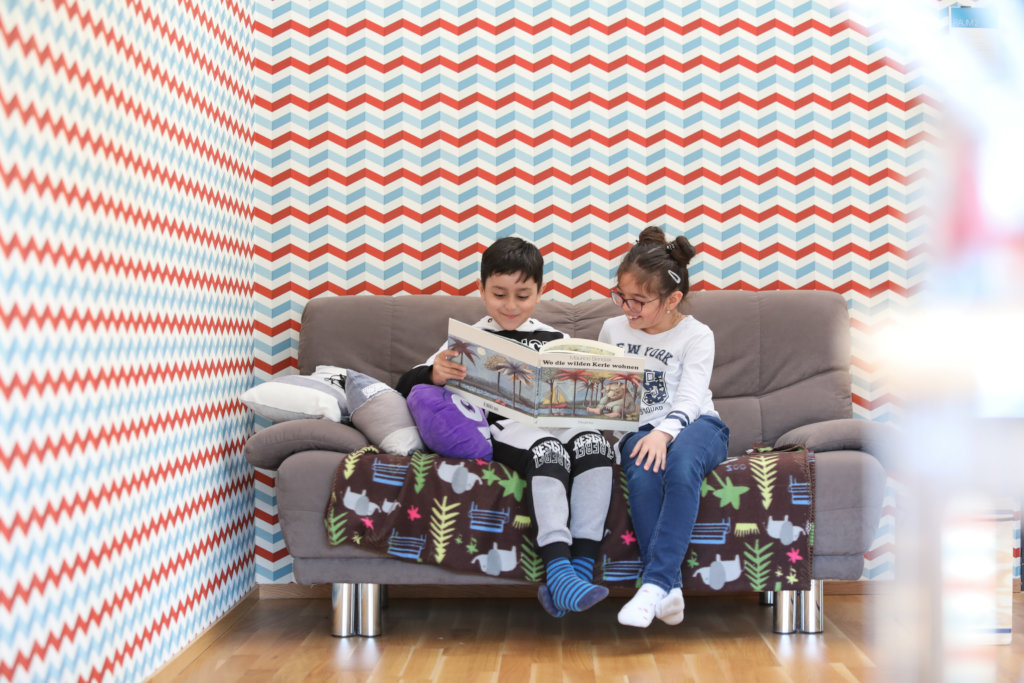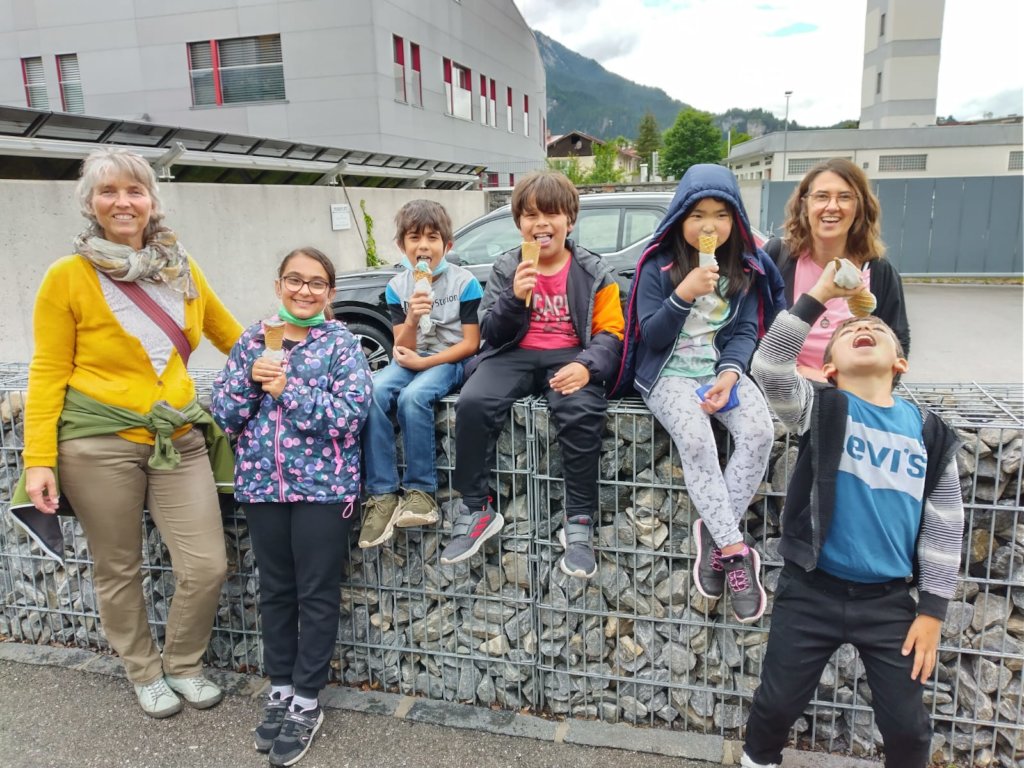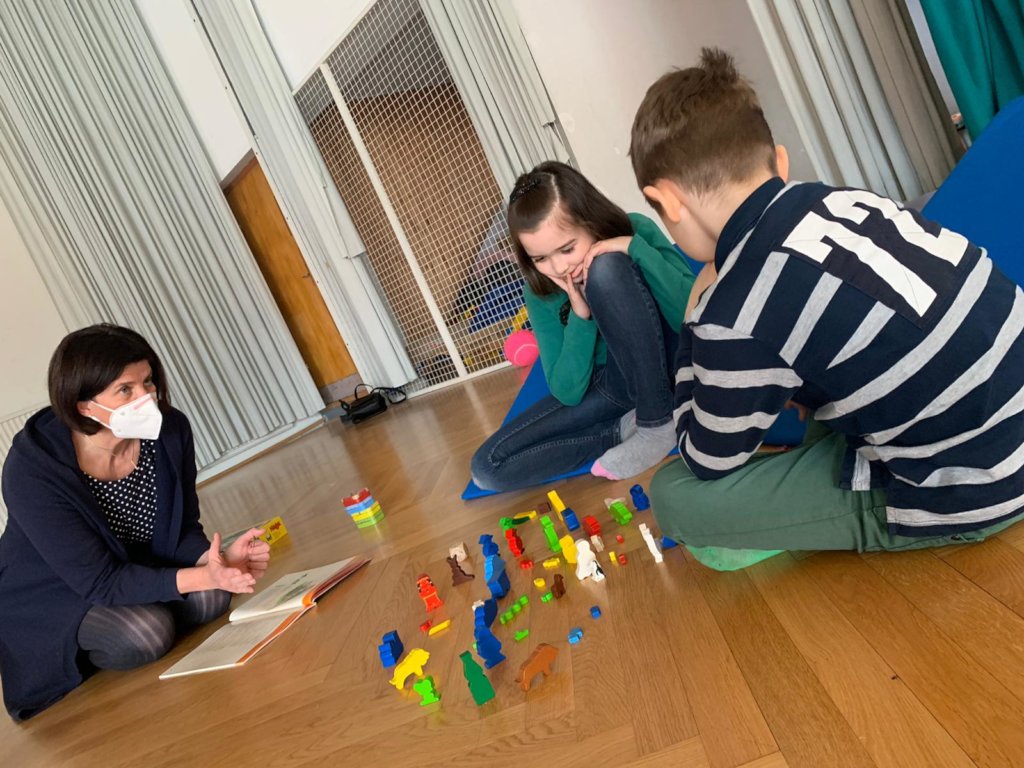By Andreas Jagersberger | Philanthropy & Partnerships
The Lerncafés (learning cafés) basically offer free learning support and afternoon care to students with and without a migration background aged 6-15 years, who come from educationally and socially disadvantaged backgrounds. The multi-professional teams enable the children and adolescents to achieve visible learning successes, strengthen their knowledge of German and their reading skills, and enjoy learning through a situation- and child-specific setting as well as through targeted learning assistance with homework and preparation for schoolwork/tests. In addition, children and adolescents experience support in their personal development and learn to deal with different cultures and religions in an appreciative manner.
Through an individual-oriented and flexible offer as well as through the stable structure (same quality standards for all learning cafés), ideal framework conditions are created to enable optimal learning support, improvement of social competencies as well as empowerment and strengthening of the children's potentials. Workshops with thematic focuses and various activities and excursions additionally promote social skills.
Lerncafés during summer break
During school’s summer break (July-August), the Lerncafés summer program offers optimal preparation for the start of school for its students. The refreshment weeks (usually 2 weeks before the start of school) aim to repeat the learning material, to compensate for learning deficits and to motivate and strengthen the children for the new school year. Since many of the supported students come from a financially disadvantaged background, the Lerncafés – especially during the summer program – enable participation in social life: As part of the learning café, they get the chance to e.g. go to the museum, learn new sports in the summer program or can often try out an instrument for the first time (some LCs have cooperation with music schools, for example).
What does the Lerncafé support mean for children
Chakib (name changed to protect the client), a 15-year-old boy, originally from Iraq, lives in Austria for over three years and attends the 4th grade of an NMS school (New Middle School) as well as a Lerncafé in Vienna. He speaks English very well, but still had difficulties in German. Therefore, Chakib had to repeat the last school year. He is very interested in mathematics and physics. Unfortunately, he is not always able to prove his abilities in those subjects – because for example in mathematics he often simply fails to understand the information given in German, although he could actually solve the tasks from a mathematical point of view.
Nevertheless, Chakib was always very motivated and wanted to attend a secondary school. When he unfortunately received a negative grade on his mid-year report card in German in February 2021, he was initially very frustrated, since that one grade meant that he would not be able to apply to a secondary school.
But Chakib and the dedicated Lerncafé team persistently searched for ways to enable him to go to a secondary school. And it paid off. After a long search, together they found a secondary school for economic professions (HLW) including a transition class, where he could register despite the negative grade and then transfer with a positive annual report. In the second half of the schooling year, Chakib worked extremely hard and prepared very well during the Lerncafé sessions, especially for tests. On the day before his German school test, he even called the Lerncafé teacher he was working with in the evening and went over several discussion topics again. The effort was definitely worth it, because he wrote an excellent essay, considering his knowledge of German, and thus secured the positive grade. In addition, he presented an excellent German paper, for which he even received a grade of 1 and was able to move on to the secondary school for economic professions.
Lerncafés in numbers:
Links:
By Andreas Jagersberger | Philanthropy & Partnerships
Project reports on GlobalGiving are posted directly to globalgiving.org by Project Leaders as they are completed, generally every 3-4 months. To protect the integrity of these documents, GlobalGiving does not alter them; therefore you may find some language or formatting issues.
If you donate to this project or have donated to this project, you can receive an email when this project posts a report. You can also subscribe for reports without donating.


